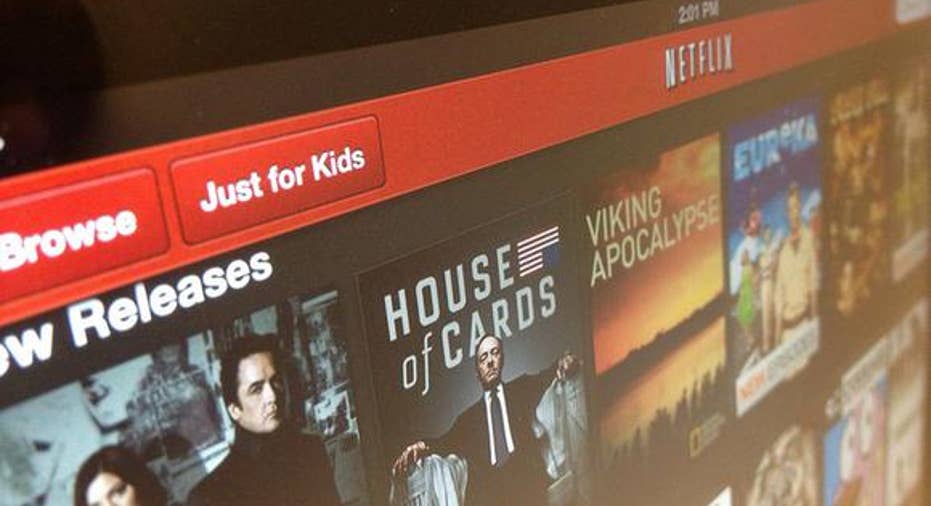Netflix Inc Is About to Get a Lot More Profitable

News out ofNetflix Inc has been relatively quiet for the last few months. The company's stampede around the globe came to an end in January when it surprisingly unveiled the service in dozens of countries, marking the end to many years of international expansion. Meanwhile, the consistent drumbeat of new Netflix shows like Season 4 of House of Cards and Judd Apatow'sLove,seems much more ordinary than it did just a couple of years ago when Netflix was pioneering streaming originals.
The lack of buzzy headlines doesn't mean Netflix is running out of juice, however. Quite the contrary for investors, as the company is set up for a big payoff next month. An estimated 17 million Netflix subscribers in the U.S., who had been grandfathered in at the $7.99/month rate for the standard plan, will see their bills go up to $9.99/month. Meanwhile, members who signed up between May of 2014 and October of last year will see their rates increase $1, to $9.99/month.
Remember the Qwikster disasterWary of the last time it implemented an across-the-board price increase, Netflix gave its subscribers a two-year period to enjoy the $7.99/month rate, the base price for Netflix streaming since its split from the DVD-by-mail segment in 2011. That year, Netflix announced it would spin off its DVD-by-mail division under the label Qwikster, and charge $8 each for streaming and DVDs, up from $10 for both earlier, or a 60% price hike. The result was an exodus of customers, as nearly 1 million dropped the service, and the confusion over Qwikster only made it worse.Netflix ditched the new name soon after.
Five years later, the service would seem due for a price increase, but surveys show subscribers balking. Eighty percent of members aren't even aware of the upcoming price increase according to JPMorgan Chase, which found that 15% of subscribers said a price increase would cause them to cancel.
In aUBSsurvey, 41% of subscribers said they would accept no price increase,but analysts noted that those numbers are often exaggerated, as subscribers use the survey as a form of protest. Instead, UBS estimates an attrition rate of just 3%-4%.
Even at $9.99/month, Netflix is still a bargain by conventional standards. Based on the 42.5 billion hours of video streamed last year, it costs the average subscriber $0.09 an hour compared to $0.30 an hour for the average cable or satellite TV package.
The streamer also just got a vote of confidence from a survey that showed its original programming was the most popular in the streaming universe. In aMorgan Stanleysurvey, 29% of respondents said Netflix had the best original shows, compared to 18% for Time Warner's HBO, and 4%-5% each for Showtime,Amazon.com Prime, and Hulu.
Even at $10/month, Netflix is cheaper than most of its rivals. HBO's streaming service HBO Now costs $15/month, while Showtime's starts at $11/month. Hulu charges $7.99/month for limited commercials and $11.99/month for ad-free service. At $99/year, Amazon Prime cost less than Netflix's new standard price, but requires users to pay for the full year upfront.
What it meansfor the bottom lineConsidering that Netflix is considerably cheaper than cable alternatives, and it's now the most-popular service for original shows, I'd expect the subscriber losses from the price hike to be limited. Even if UBS is correct that 3%-4% of members ditch the service, the increase would still bring in about $350 million in new revenue from members grandfathered in at $7.99/month. Because of Netflix's subscription model, that income would go straight to the bottom line.
If we assume an additional $50 million from subscribers paying $8.99/month today, Netflix's operating income would jump from $305 million last year to about $705 million, more than doubling. Assuming its interest expense remains the same, its pre-tax income would more than triple from a year ago, to $541 million. With a 25% tax rate, the company's net income would be about $400 million, or close to $1 per share, without including the impact of this year's subscriber growth.
While Netflix remains highly valued even at that EPS level, it's clear that the price hike is a meaningful step toward profitability. As the company builds out its library of original programming, its pricing power should only increase. With its international expansion complete, it can now focus on driving profits abroad.
CEO Reed Hastings said last year that the company would deliver material profits by 2017. The upcoming price hike is a big reason to believe that will come true.
The article Netflix Inc Is About to Get a Lot More Profitable originally appeared on Fool.com.
Jeremy Bowman owns shares of Netflix. The Motley Fool owns shares of and recommends Amazon.com and Netflix. The Motley Fool recommends Time Warner. Try any of our Foolish newsletter services free for 30 days. We Fools may not all hold the same opinions, but we all believe that considering a diverse range of insights makes us better investors. The Motley Fool has a disclosure policy.
Copyright 1995 - 2016 The Motley Fool, LLC. All rights reserved. The Motley Fool has a disclosure policy.



















